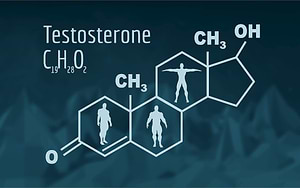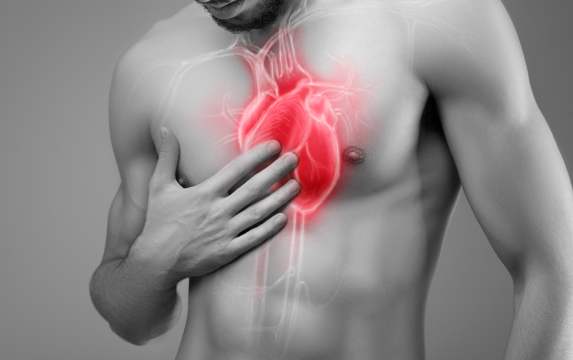What if they told you that you could take your anti-depressant medication, the medicine to improve erection, the medicine that helps you sleep at night and the medicine that helps you to lose weight and balance diabetes, and… rid yourself of all those medicines? You’d think it was a hallucination.
But if they told you that all these medicines treat symptoms which have a single, common cause and if you treat that cause you would not need to treat the symptoms? That would sound more realistic, right?
A classic example of how symptoms are often treated rather than the source of the problem is that of testosterone deficiency. The roles of testosterone include preserving sexual function, building and maintaining muscle mass, energy, motivation, bone density and even overseeing cognitive function. When a man suffers from testosterone deficiency, it will cause damage to his sexual functioning, his muscle mass will be reduced, he will experience weight gain and poor mood, and in many cases the “metabolic syndrome” will worsen – a group of risk factors for cardiovascular disease appear together, among them diabetes, abdominal weight-gain, hypertension and hyperlipidemia.
Of course, not every decrease in testosterone levels can be termed “Testosterone Deficiency Syndrome.” On the contrary, for it is natural that testosterone secretion decreases with age. Testosterone secretion already begins to decrease from age 30, and from age 50 there is a significant but normal reduction in its production in the body, estimated at approximately 1%-2% per year.
In some of the men the deterioration is more extreme, outside of the normal range, and this results in a condition of testosterone deficiency. For example, in the 50-60 age bracket, around ten percent of men have a deficiency, and in the over 60’s, 20% are found to have a deficiency. Only when the characteristic symptoms of a testosterone deficiency are present, and not only when there is a low level of the hormone, is it considered a health problem which requires diagnosis and treatment. Measures of a lack of testosterone can be measured in a blood test.
How common is the problem in Israel? It is likely to be more common than we thought: according to Israeli research, 62% of Israeli men over 40 suffer from symptoms requiring their testosterone levels to be checked. Not all the men who are tested will be diagnosed as suffering from a syndrome associated with a testosterone deficiency, but those who are tested and diagnosed can receive precise treatment instead of a collection of medicines which leave them with the feeling that there is something wrong with them.
In contrast to Israel, where the field does not receive the necessary attention it deserves, the situation in the USA is the opposite: testosterone injections have become a weapon in the war against loss of muscle mass, the loss of desire and the ability to function sexually, obesity, depression and the loss of motivation, and testosterone treatments have moved from the domain of medicine and health to that of lifestyle. Doctors, like their patients, treat testosterone injections as the “drug of youth.” Here in Israel, we do not encourage this exaggerated approach and do not recommend checking testosterone levels as a screening test for all men, rather, those that have the symptoms to indicate it.
In any case, long before treating testosterone as the modern fountain of youth, the significant medical consequences of testosterone deficiency must be considered – a phenomenon which is under-diagnosed and under-treated in Israel. Therefore, in Israel, the committee which has written the guidelines for treating testosterone deficiency recommends testing the level of the hormone in men exhibiting signs of a deficiency.





